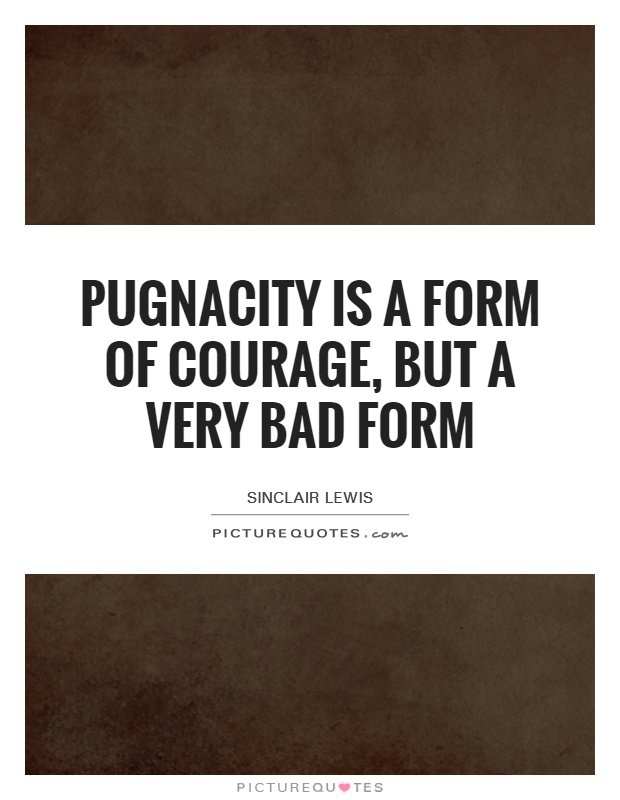Pugnacity is a form of courage, but a very bad form

Pugnacity is a form of courage, but a very bad form
Sinclair Lewis, a renowned American novelist and social critic, often explored themes of courage, morality, and the human condition in his works. One of his most famous quotes, "Pugnacity is a form of courage, but a very bad form," speaks to the complex nature of bravery and the dangers of aggression.Pugnacity, defined as a combative or aggressive attitude, can indeed be seen as a form of courage in certain contexts. In the face of adversity or conflict, standing up for oneself or one's beliefs can require a certain level of assertiveness and determination. However, when this pugnacity crosses the line into violence, cruelty, or a disregard for the well-being of others, it becomes a destructive force rather than a noble one.
In many of Sinclair Lewis's works, characters who exhibit pugnacity often do so at the expense of their own moral compass. They may be driven by a desire for power, revenge, or self-preservation, leading them to act in ways that are harmful or unethical. This type of courage, if it can even be called that, is ultimately self-serving and lacks the true bravery of standing up for what is right in the face of adversity.
Lewis's quote suggests that true courage lies not in aggression or hostility, but in compassion, empathy, and a commitment to justice. It is the ability to confront challenges with integrity, honesty, and a respect for the dignity of others. This form of courage requires a willingness to listen, learn, and engage in dialogue rather than resorting to force or intimidation.












 Friendship Quotes
Friendship Quotes Love Quotes
Love Quotes Life Quotes
Life Quotes Funny Quotes
Funny Quotes Motivational Quotes
Motivational Quotes Inspirational Quotes
Inspirational Quotes